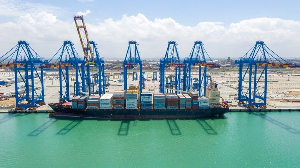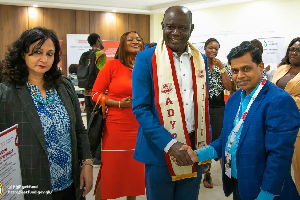The UK Department for International Development has launched a consumer comparison website (www.sendmoneyhome.org ) to reduce costs and increase security for migrant workers sending money overseas.
Thousands of foreign migrants, who live in Britain, transfer large sums of money back to their families abroad every year. Globally, the World Bank estimates that more than $220bn (£108bn) a year is sent to developing countries.
But charges in the UK vary enormously, and can run as high as £40 for a transfer of just £100. Furthermore, the security offered by some organisations is poor. In the UK, more than one-third of ethnic minority households send an average of £900 home to Africa and Asia, every year.
DFID's free consumer website – www.sendmoneyhome.org – will provide country by country listings of reputable payment companies, allowing comparisons of transfer methods, exchange rates, fees and speed. The site also offers advice for consumers if things go wrong.
The advice service is supplemented 900,000 information leaflets, covering some 20 countries, and available in both English and the local languages.
"The UK is home to large and diverse ethnic minority populations," said Douglas Alexander, the International Development Secretary. "When these people send money home they play a key role in tackling poverty in the developing world.
"By working with the financial sector to improve transparency and competition among payment organisations we are making it cheaper and easier to send money."
Many countries receive a significant proportion of their national income from overseas transfers. In Ghana, such transfers account for up to 15 per cent of the country's income . Indian families in the UK are estimated to send more than £300m a year to relatives, while British Pakistani families send home £200m a year. The five biggest recipients from the UK are Nigeria, India, Pakistan, Jamaica and Ghana.
"There are an estimated 3,000 money transfer organisations in the UK, with some 85 per cent of these focusing on person-to-person remittance payments," said Dominic Thorncroft, the chairman of the UK Money Transfer Association. "DFID has done a lot of work to encourage discussion on how best to protect these consumers.
"The UK Money Transfer Association has worked closely with DFID and supports the new charter, which aims to provide better information and transparency for people sending money and to encourage companies to stay focused on consumers' needs."













